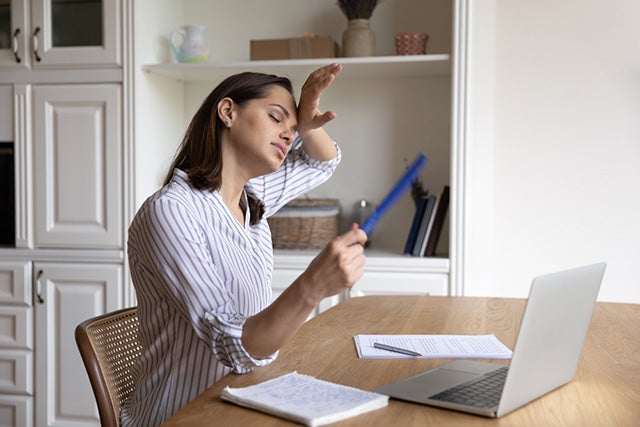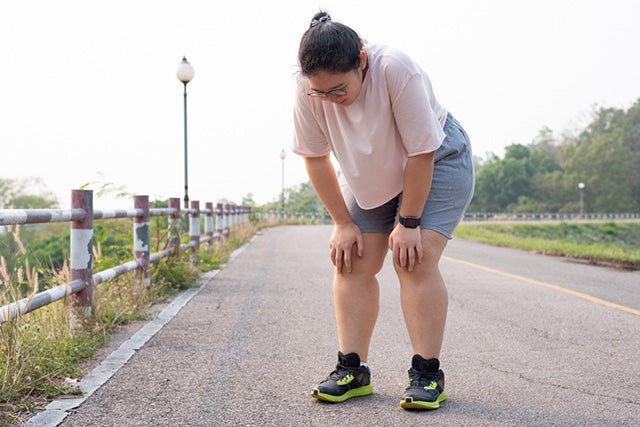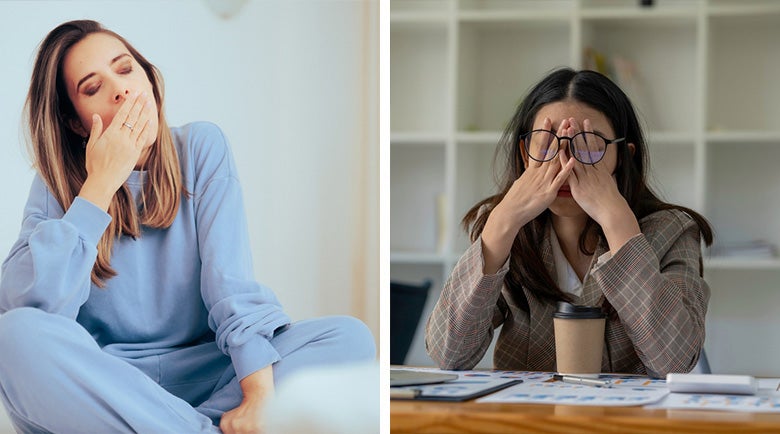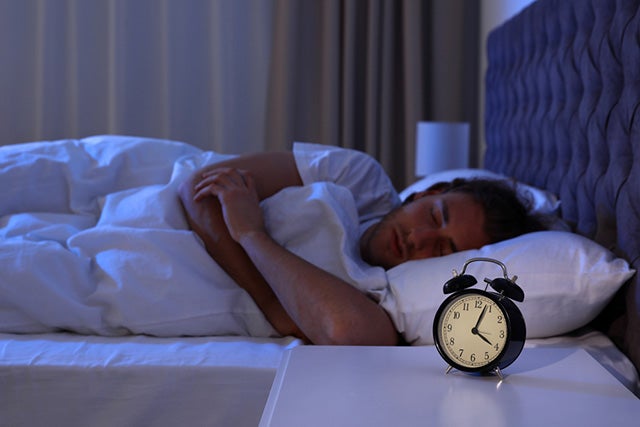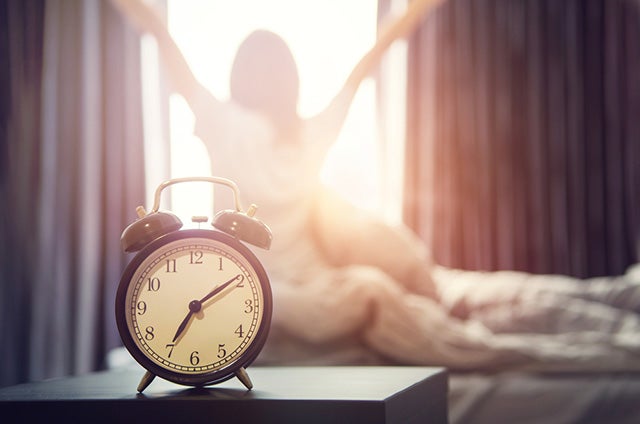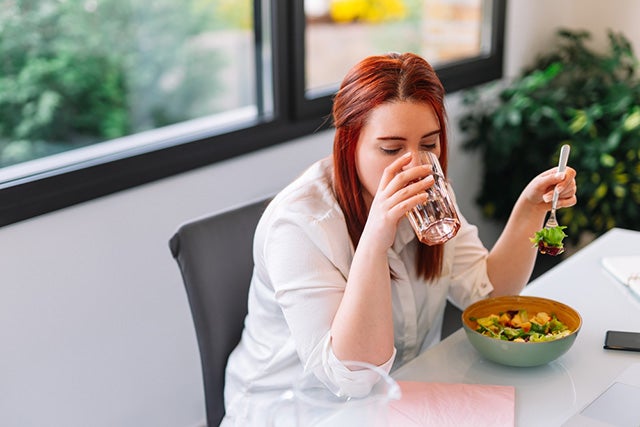Tired and sleepy are two words that are often confused with each other. While they may sound the same, they have different meanings. This article explains the difference between tired and sleepy and how to wake up feeling refreshed.
What Makes You Tired?
Many things could cause a person to feel tired. Here are some examples.
A Poor Diet
Eating poorly can directly impact our energy levels, causing us to feel tired most of the time. This is because nutrient-dense foods like most fruits, veggies, whole grains, and lean proteins are critical for providing our bodies with the nutrients we need to function effectively.
Missing out on key vitamins and minerals through nutrient deficiencies can impede the production of key hormones and neurotransmitters that control metabolism and stimulation. Additionally, nutrient imbalances can cause our adrenal glands to overwork to produce more stress hormones that leave us feeling depleted.
High-Caffeine Intake
Studies have shown that high levels of caffeine alter how the body produces and uses energy, resulting in an inability to get adequate rest.
For example, caffeine has increased activity in neurons within the brain, leading to a greater release of the neurotransmitter dopamine. This results in alertness that can feel very similar to energy and enthusiasm.
Unfortunately, this sensation can leave people feeling more tired than invigorated. In addition, as caffeine breaks down and leaves the body over time, it also causes feelings of fatigue by affecting sleep cycles and disrupting normal circadian rhythms.
Being Dehydrated
Dehydration can be defined as a state of low fluid volume in the body. When the body is dehydrated, it does not have enough water to function properly. This typically results in tiredness and weakness, increased thirst, and dry skin and lips.
Dehydration can lead to persistent fatigue because it causes an imbalance in the body’s electrolyte levels. When insufficient electrolytes are unavailable, processes like energy production become compromised, resulting in a lack of energy and stamina.
Additionally, inadequate hydration can affect the brain’s ability to send signals properly through the nervous system. All these factors can contribute to constantly feeling tired and drained no matter how much you sleep or rest.
Being Obese
Obesity can often lead to a constant state of feeling tired, as the excess weight obstructs airflow to the lungs during sleep. In obstructive sleep apnea, which is a common condition among overweight or obese people, the airways become blocked during sleep, causing pauses in breathing.
This causes sufferers to wake up numerous times and experience disrupted and poor-quality sleep. As a result, those with obstructive sleep apnea may find themselves fatigued during the day and struggle to stay awake.
Furthermore, this exhaustion can also cause feelings of depression, anxiety, and moodiness due to disrupted sleep patterns and a lack of restorative rest.
Feeling Stressed
Stress is often associated with feeling energetic and invigorated, but it can also lead to feelings of fatigue and exhaustion. This is because high-stress levels can lower the body’s production of important hormones like cortisol and adrenaline, effectively decreasing energy levels mentally and physically.
When our bodies are constantly stressed, we tend to feel tired more often than not and are less able to concentrate or focus on daily tasks.
Long-term stress can affect various organs and bodily functions, such as the liver, which is responsible for clearing waste products from the blood. Therefore, it is clear that there is a link between stress and constant feelings of fatigue.
Different Medical Conditions
There are several medical conditions that can cause a person to feel excessively tired. These can include anxiety disorders, cancer, sleep apnea, diabetes, and depression. Anxiety disorders, like generalized anxiety and panic disorders, can cause overwhelming feelings of anxiety that can be physically and mentally draining.
Cancer can also cause extreme fatigue because it affects the body’s normal processes. Sleep apnea occurs when breathing is interrupted during sleep, severely disrupting sleep and leaving a person feeling chronically exhausted.
Diabetes is another major culprit in fatigue; this condition affects the hormonal system and makes it more difficult for the body to properly use energy from food.
Finally, depression produces symptoms such as a lack of motivation and constant feelings of sadness or hopelessness that can sap one’s energy levels over time.
What Makes You Sleepy?
With sleep, the answers are more straightforward. You feel sleepy because of how your circadian rhythm works. Some of the most common causes of sleepiness include.
You might want to check: Why Do I Get Sleepy After I Eat
The Foods You Eat
Certain foods are rich in melatonin, a hormone your body secretes as it prepares for sleep. Bananas, for example, can trigger melatonin production.
Poor Sleep
If you didn’t sleep the night before, you are more likely to feel sleepy the next day.
That Morning Coffee
While many people enjoy a cup of coffee in the morning to help energize themselves and jumpstart their day, there is some evidence to suggest that this caffeine-rich beverage could actually make you feel sleepier in the afternoon. This has been attributed to a molecule called adenosine.
When we drink coffee in the morning, adenosine molecules bind to brain receptors until the caffeine molecules eventually displace them in coffee and other beverages.
Since adenosine promotes the sleep drive and caffeine essentially blocks its effects even though the body still produces it, it eventually comes all at once when the caffeine effect wears off. Hence the afternoon sleepiness.
You might be interested: Why Do You Get Tired and Sleepy When You’re Sick?
Sleep Vs. Tired
While these terms are often used interchangeably, feeling tired is not the same as feeling sleepy.
| Sleepiness | Tiredness |
|
|
How to Avoid Being Sleepy
As anyone who has ever felt sleepy throughout the day can attest, being tired can make it difficult to focus, concentrate, and perform everyday tasks. Many things can cause tiredness, such as inadequate sleep, poor eating habits, and stress. However, there are also many strategies that you can implement to avoid feeling fatigued throughout the day.
Create a Proper Sleeping Environment
One key step is ensuring you get enough sleep each night. This means promoting a healthy sleep hygiene routine by limiting electronic use before bedtime, creating a peaceful sleeping environment, and incorporating mindfulness practices like yoga or meditation into your daily schedule.
Eat Good Food
Another important factor is ensuring that your diet consists of foods that provide energy and nutrients rather than those that contribute to feelings of sluggishness and lethargy. Eating plenty of fresh fruits and vegetables, minimizing caffeine intake, and avoiding other unhealthy foods like processed snacks or fast food will help you feel invigorated all day long.
Exercise
Regular physical activity reduces stress and enhances the quantity and quality of sleep. Exercise first thing in the morning or late afternoon to give your body time to cool down before you go to bed.
Spend Time in the Sun
The health benefits of spending time in the sun have long been well-documented. Not only does sunlight help our bodies to produce much-needed vitamin D, but it also has several mood-boosting effects and can improve our general sense of well-being. Given these benefits, it may be surprising to learn that spending time in the sun can also improve our sleeping schedule.
Studies have shown that natural light helps to synchronize our circadian rhythms, or internal clock, which plays a key role in regulating the sleep cycle. And because exposure to sunlight tends to suppress melatonin production at night, sleeping under the stars can make falling asleep easier and more restful.
You might want to read: How to Wake Yourself Up When Tired
How to Avoid Being Tired
People have diverse biological make-ups, and as a result, some will suffer swings in essential tiredness regulators such as leptin, insulin, cortisol, and possibly many other important regulators.
Nevertheless, many of the same recommended practices continue to apply, including getting sufficient sleep at night, engaging in regular physical activity, maintaining adequate water and nutrition, and avoiding overeating in the middle of the day.
Move Around More
Movement is one of the most effective techniques to prevent yourself from becoming fatigued during the day. Walking, even at a modest pace, will increase the circulation of oxygen throughout your body, promoting the function of your mitochondria and making you feel more energized. After lunch, give going for a brief walk a shot; you might be surprised by how energized you feel afterward.
Stay Hydrated and Well-Fed
In addition to drinking enough water and eating meals high in fiber, good carbs, and healthy fats, you can do a lot more to maintain your alertness by staying well-hydrated. You can prevent the insulin spikes that cause you to feel exhausted if you maintain a steady blood sugar level in your body.
Bottom Line
We’ve explored the factors that can make you tired or sleepy. Now it’s time to look at ways to avoid these states and get a good night’s sleep. First, let’s look at how to avoid being sleepy. Avoid caffeine in the afternoon, establish a bedtime routine, and wind down before bed.
If you struggle with daytime drowsiness, try taking a power nap or drinking coffee immediately after waking up. To reduce your chances of feeling tired, get enough exercise and eat balanced meals throughout the day.
Photo credit: antoniodiaz/Shutterstock;
fizkes/Shutterstock; chuck hsu/Shutterstock;
Monkey Business Images/Shutterstock;
SrideeStudio/Shutterstock; Bond JP/Shutterstock;
BearFotos/Shutterstock; CrizzyStudio/Shutterstock;
Nicoleta Ionescu/Shutterstock; New Africa/Shutterstock;
Serg64/Shutterstock; Twinsterphoto/Shutterstock;
oatawa/Shutterstock; Ground Picture/Shutterstock;
anstudiophoto/Shutterstock
Frequently Asked Questions
Is lethargic the same as sleepy?
Lethargy is described as a lack of enthusiasm. A lethargic person lacks the energy and enthusiasm to engage in all sorts of activities. Considering this definition, lethargy is similar to feeling tired, not sleepy.
Is fatigue the same as tiredness?
Fatigue can be a synonym for tiredness, as they both express that state of exhaustion without necessarily feeling sleepy.


